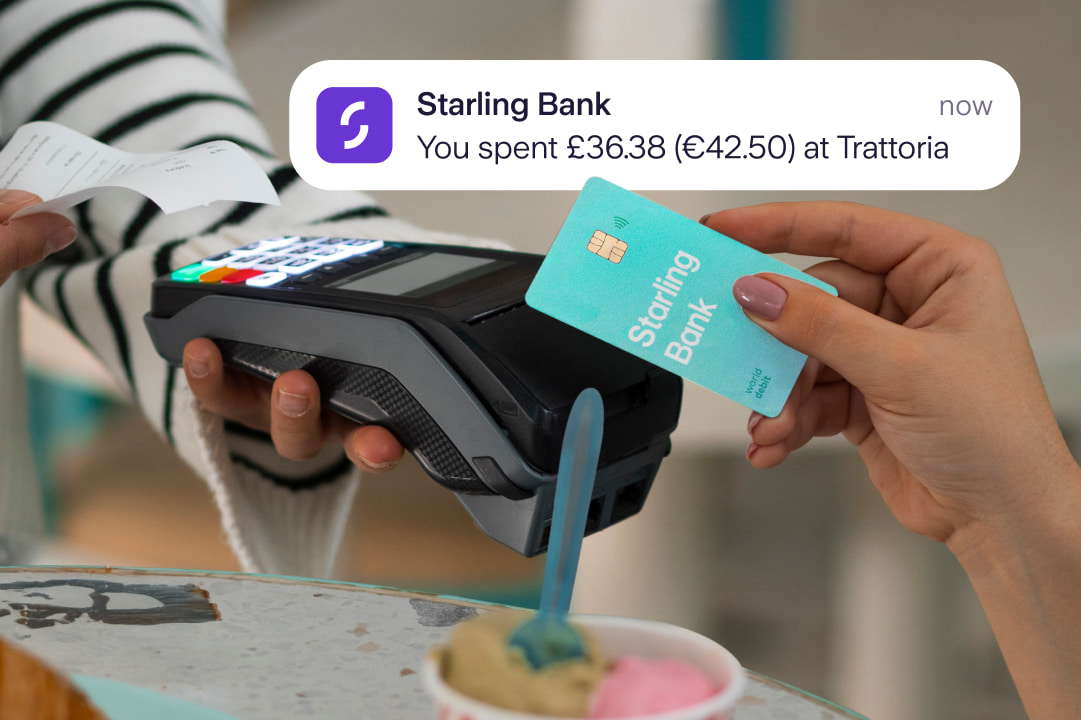
Personal finance
“We couldn’t get on the pitch – there were loads of men playing. The girls were so disappointed.”
15th May 2024

Whether you have £20,000, £10,000 or £500 to spend, you need to plan your budget. Lucy Cafferkey, senior PR manager at Starling Bank, shares insights gained from her own recent wedding.
I got engaged in November 2019 when Corona was a light lager and not a virus. My wedding had to be rescheduled which allowed me time to master budgeting in a way that I had never done before. Here’s how I did it.
Using the Debretts Wedding Handbook really helped us understand how much our wedding might cost, as it had a pre-prepared list of things you might expect to pay for. Online resources such as Rock My Wedding, Bridebook and Budget Planner can also be helpful as they give inspiration, ideas and useful planning advice.
Once you’re clear on your outgoings, you can jot down what needs paying for when, and ensure that you’re on track to make payments on time. Starling Spaces can help you put money away for particular expenses. Think of them as virtual change jars. They sit within your bank account, but the money’s kept separate from your main balance – so you’ll never accidentally dip into money set aside for your wedding.
Investing in wedding insurance is an expenditure you won’t regret. Reading the small print and checking what’s covered during health scares is well worth doing before you sign on the dotted line. Standard insurance may not cover the costs of a storm washing out an outdoor wedding, or many other costs. You do need to check.
At time of publication, several insurance companies were not issuing new wedding insurance policies, due to public health uncertainty.
Figure out who pays for what, or if you’re paying together, or if a family member is supporting. Some couples rarely talk about money and a wedding is the perfect time to start doing so. And if you want to plan and budget together, a joint account could be a great place to start.
Break your budget into ‘must haves’ and ‘nice to haves’. A venue, a wedding dress and a registrar might be your essentials, but live music and favours (small thank you gifts) for the guests might be viewed as additional extras. Then if you struggle to save as much as you’d hoped for, you’ll have some optional extras that you won't feel disappointed about not being able to afford.
Think about whether you want to get married indoors or outdoors, in a grand space or somewhere more cosy. It will have a big impact on the cost. Some venues are booked far in advance now, so it’s good to plan. Be aware of change and make sure your venue is flexible.
One way to cut costs might be to buy a pre-worn or vintage wedding dress, through websites such as Still White. Local wedding dress hire could be a great way to marry sustainably and affordably.
Think about who you know. Often friends and family can help out by baking a cake, lending you vases to put the flowers in, or offering advice on how they saved money for their wedding day.
You can also do-it-yourself. Making your wedding invitations and wedding favours can be a lot of fun.
Check how much you’ve set aside for your wedding regularly so you can budget plan accordingly. Starling gives you the option to enable a push notification whenever there’s a payment-related activity on your account so you can track your spending. This can help you keep an eye on the bank balance and nip spending when needed.
Remember that your big day is about you and your partner. I ended up with just four guests at mine due to Covid restrictions and it still felt truly special. So try and ignore what other people do on their wedding day and remember it is about the vows and the commitment to each other.
This article is intended as general information only and does not constitute advice in any way. For any specific questions, you may want to consult your legal advisor.

Personal finance
15th May 2024

Personal finance
13th May 2024

Personal finance
14th March 2024

Money Truths
8th July 2025

Money Truths
2nd July 2025

Money Truths
1st July 2025